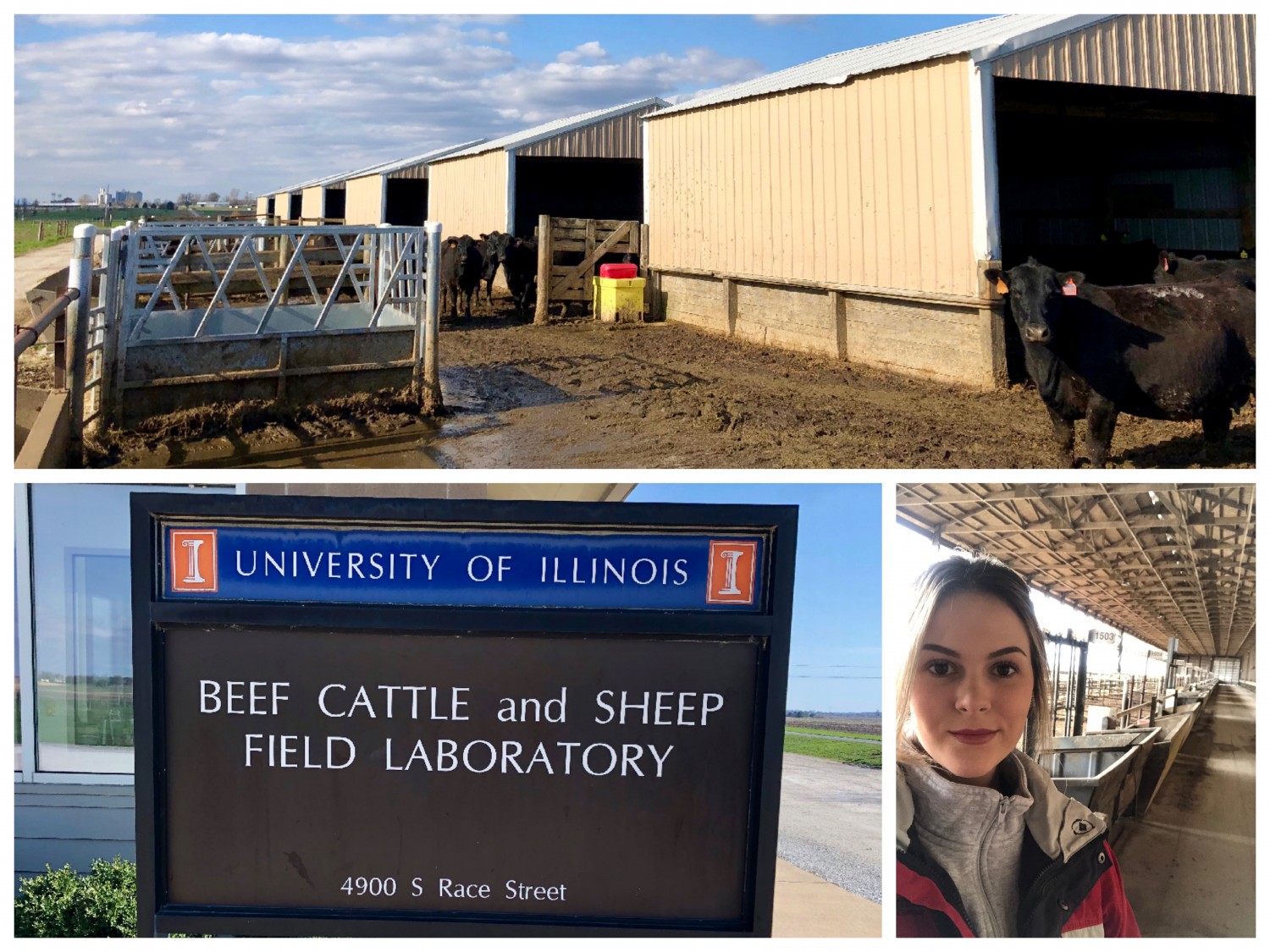Learning about the value of agriculture at the beef farm

Following the close of my freshman year, I was questioning my purpose at this university. I had little direction with respect to my studies, and was having trouble pinpointing my passion. After significant thought and intense debate, I made the decision not to return to the university for the upcoming fall semester.
I decided a change of scenery was essential to the development of my long-term goals and character, and I packed my bags and headed out West. Upon my arrival in San Francisco’s East Bay, I settled into a full-time position at a small burger joint. This experience helped shaped me into the woman I am today, instilling in me the importance of hard-work, commitment, and self-discipline. Seven months later, I was preparing to return to the University of Illinois, with specific goals engrained in my mind. I was set on a major in Animal Sciences, with aspirations of going to veterinary school; however, it wasn’t until I started work on the university’s beef cattle farm that my true passion came to fruition.
Coming from a suburb of Chicago, I had never stepped foot on a farm in my entire life, I’d never seen a cow, and I’d never driven a tractor. Initially, I gagged at the thought of cattle droppings and had to hold my breath each time I walked past the feed bunks filled with fermenting silage. My parents were shocked and friends horrified; but I felt content. This opportunity acquainted me with various animal sciences concepts as they pertain to ruminants, giving me a first-hand taste of beef cattle production; from breeding and cow-calf ranching, to the shipment of cattle to processing facilities, and everything in between. It taught me many valuable life lessons about responsibility and humility, and the importance of compassion when working with animals. But, most of all, it taught that the love I had for agriculture was not a universal feeling.
It soon became apparent to me that agricultural literacy was quite low among the general population and that this failure to successfully comprehend agricultural processes often resulted in the spread of misinformation. I became increasingly interested in debunking common misconceptions within the field and felt that it was my duty to support those who have dedicated their lives to providing, unselfishly, for the masses. Having finally pinpointed my passion, I transferred into the department of Agricultural Communications and have since spent my time advocating for the field. As an agricultural communicator, I am passionate about educating audiences with diverse backgrounds and beliefs on the industry and the processes required to bring food from farm to table. It is my duty to improve communication for the vital missions of agriculture, and I strive to influence those around me to value the industry as much as I do.